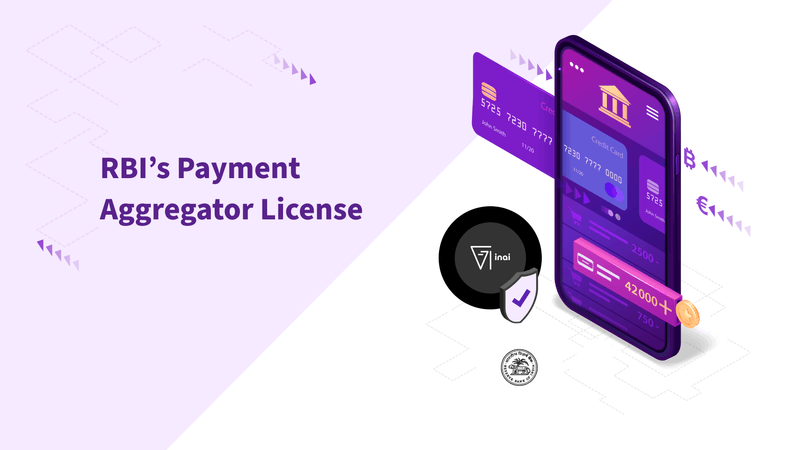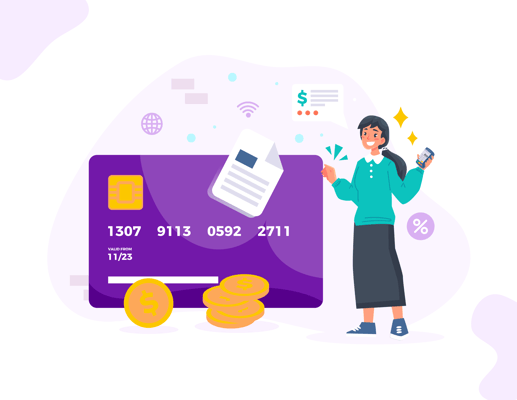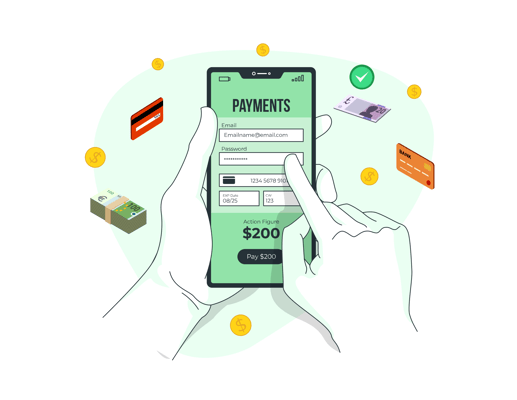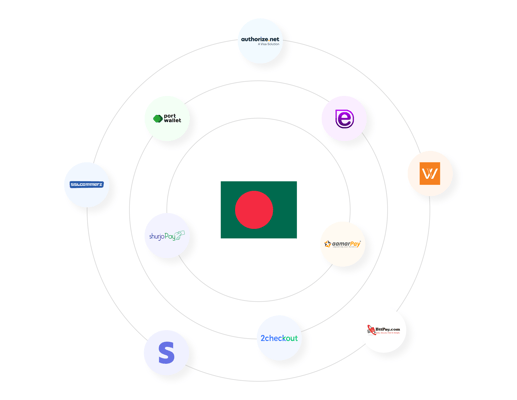Payment aggregators such as Razorpay, Pine Labs, Stripe, etc., are in the news for getting their principal payment aggregator license from RBI. But what is this payment aggregator license, and what if the payment gateway you use for your business is not authorized with the RBI's payment aggregator license?
If you have the above questions on your mind, read along. This blog talks about everything you need to know about the payment aggregator license, from what it is and what it means to payment gateways to what you should do if your payment gateways aren't authorized with this license.
What is RBI's payment aggregator license?
A payment aggregator license is basically a license that is required by all non-banking entities who call themselves payment aggregators to operate and offer digital payment solutions to merchants. Why was it required, you may ask? Well, in the past decade, the popularity of payment aggregators offering digital payment solutions skyrocketed. They were handling transactions worth hundreds or perhaps thousands of crores. However, unlike banks, the payment aggregators weren't following the strict guidelines set by the Reserve Bank of India, which caught RBI's eye.
So, to snub the payment aggregators or gateways operating in a shady manner, i.e., not following the set guidelines (involved in crypto payments, online betting, or not verifying merchant details), RBI released a payment aggregator framework in March 2020.
According to this framework, all the entities that want to function as payment aggregators must have a payment aggregator license from RBI. RBI started accepting applications with an initial deadline of June 30, 2021, which was extended to September 30, 2021. During this time, the RBI received over 180 applications from both payment gateways (wannabe aggregators) and aggregators such as Zomato, cred, Reliance, Pine Labs, Stripe, and Razorpay, just to name a few.
Quite recently, at the beginning of July 2022, Razor Pay, Pine Labs, 1-Pay, and Stripe received in-principle approval for their PA licenses from RBI. It's expected that more approvals will follow, and RBI will officially announce the names of initially approved entities in the coming weeks.
What does the payment aggregator license mean to payment gateways?
The payment aggregator license to payment gateways is like food to humans. While this may sound dramatic, it's completely true. Just like food is necessary for the survival of humans, the PA license is necessary for the survival of PA companies.
The entities who get the PA license can offer their services to the merchants and run their business as usual.
On the flip side, entities failing to procure the license must wrap their businesses. Also, the merchants using that payment gateway must switch to a licensed gateway or aggregator within three months. And this will impact not only the payment entities themselves but also the merchants associated with them.
What are the basic requirements for a payment aggregator license?
Here's what a company needs to be able to apply for a payment aggregator license:
- The payment aggregator must be incorporated according to the Companies Act 2013.
- The new PA must have a minimum of Rs. 15 crores while filing the application, attain a net worth of Rs. 25 within three years of incorporation, and maintain the same thereafter.
- The net worth for existing payment aggregators must be Rs. 15 crores on or before March 31, 2021, and 25 crores by March 31, 2023, and the same should be maintained thereafter.
- PAs must submit a certificate prepared by the organization's CAs that proves the net worth mentioned in the application.
- New payment aggregators can submit a certificate from their CAs in an enclosed format along with a provisional balance sheet.
- The payment aggregator must have two members and three directors.
- The payment aggregator must be PCI DSS compliant.
- Documentation Required:
- Address proof of the business
- Certificate of incorporation issued by ROC.
- Director Signature Certificate along with Director Identification Number of all the directors.
- Company's bank account details.
- A well-laid-out plan for the next five years.
- Code testing certificate from a software agency.
- An audited balance sheet since the business importation.
As a Customer, what to do if your payment gateway isn't authorized with RBI's payment aggregator license?
Ensure you have multiple payment gateway partners, so your business is not exposed to a single gateway. This step would be ideal while setting up a payment gateway and not after the already integrated gateway gets unauthorized.
1. Secure the Customer Data
You need to take ownership of your customer data if your payment gateway isn't RBI authorized. This way, you can quickly integrate the existing data into a licensed payment gateway without hampering operations.
2. Switch to a Payment Aggregator Platform
While you may think switching from one payment gateway would be a great option, it's not. Switching to another payment gateway requires a lot of time, money, and engineering effort. And this could also impact your operations negatively.
However, there's a better way: switching to a payment aggregator platform like inai. How would that help? Read along
How can inai help?
1. Integrate all Licensed Payment Gateways in Days
Being a payment aggregator platform, inai brings all licensed payment processors and payment methods to one place, which makes the integration process super convenient and fast.
2. Migrate Customer Data Without Affecting Continuity in Business
Using inai, you can migrate customer data almost instantly, which prevents the migration from impacting your business continuity.
3. Increase Checkout Conversion Rate
inai supports numerous payment processors that allow customers to use 300+ payment methods, including localized methods such as apple pay, UPI, credit card, debit card, etc. It automatically chooses the most successful payment processor in that region, which reduces the number of failed transactions and thus increases the conversion rates.
Also read : "10 Ways to Improve Your Checkout Conversion Rates in Southeast Asia"
Wrapping up
RBI's payment aggregator license is meant to regulate all the entities that want to or already deal with digital payments. This will help ensure that activities like money laundering are put to a stop and payment companies operate under the purview of the government. However, the above never means your operations as a customer should be stopped.
And to be sure of it, you can reach out to inai. We can help you migrate your customer data and integrate all the licensed payment processors quickly, ensuring seamless operations for your customers.
.png?width=123&height=71&name=inai%20logo%20-%20dark%201(1).png)





